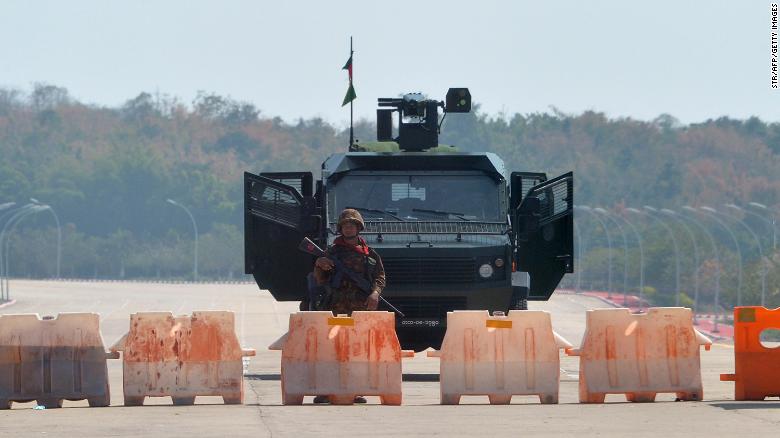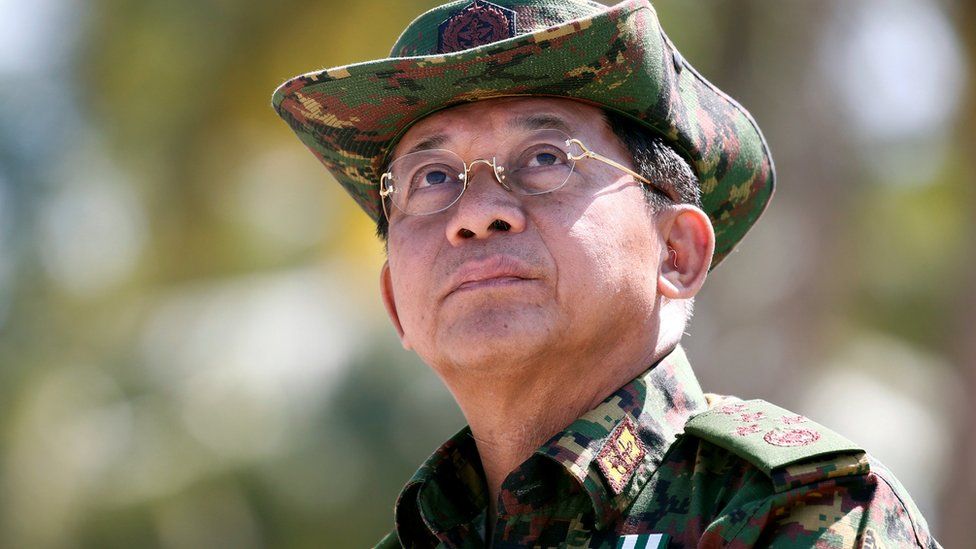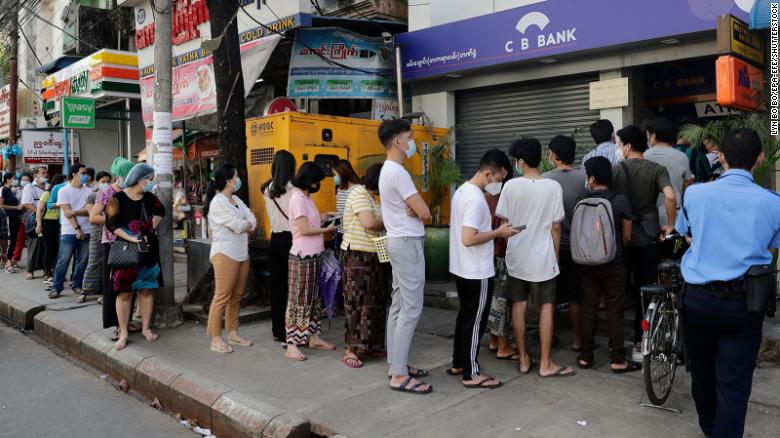Many government leaders worldwide have condemned the takeover in Myanmar, as the junta which ruled the country for decades reasserted its dominion in a military coup d’etat.
Myanmar’s powerful military has seized power after detaining the country’s civilian leader, Aung San Suu Kyi, and other senior members of her governing party, the National League for Democracy (NLD). In the wake of the coup, all authority has been claimed by the country’s top army commander and a one-year state of emergency has been declared, a statement on military TV said.
The election in November 2020 was only the second democratic poll Myanmar had held since it emerged from the 49-year iron grip of military rule in 2011. The NLD swept the November 8 polls in an absolute landslide (taking a stunning 83% of the vote) and was expecting to continue at the helm with a new five-year term.
The 75-year-old Suu Kyi – a former worldwide icon of democracy and Nobel peace prize winner whose international reputation has been shredded over her shameful handling of the Rohingya Muslim crisis – remains an incredibly popular figure in Myanmar. As the leader of the NLD since 1988, Suu Kyi spent some 15 years under house arrest before gaining release in 2010 and subsequently leading her party to a resounding victory in the country’s historic 2015 elections. Since her ascent to power, however, her standing as a champion of democracy has taken a worldwide beating.

Following the most recent decisive electoral win by Suu Kyi’s party in November, the military asserted that the election was fraudulent. The military-backed Union Solidarity and Development Party (USDP) won just 33 out of a possible 476 seats. The sheer scale of voter fraud required to deliver that resounding a defeat to the USDP is almost unimaginable, yet the army maintained for weeks that that is precisely what happened.
While similarly fact-free claims by now ex-president Donald Trump in the United States tested the strength of democracy in that country, up to and including an insurrectionist storming of the US Capitol by pro-Trump rioters on January 6, Myanmar’s fledgling democracy was simply nowhere near robust enough to fend off the authority of the military, which until 2011, had ruled the country.
In the early hours of Monday, February 1, the military announced it was giving power to commander-in-chief Min Aung Hlaing because of what they claimed was “election fraud.” Aung Hlaing has been under US sanctions since December 2019, having been personally designated for significant human rights abuses related to the atrocities committed against the Rohingya Muslim community.
For weeks, fears had been mounting in Myanmar about the possibility of an overthrow of the elected government, as the military had steadfastly refused to accept the results of the election. Today, those fears were realised. As news of the takeover rippled across the country, soldiers took to the streets of the capital, Nay Pyi Taw, and the largest city, Yangon.

According to CNN, “The country woke up to widespread internet and communications blackouts, closed banks, and soldiers in army fatigues patrolling the streets of Myanmar’s largest city, Yangon. Residents turning on their television sets could only access the military-owned Myawaddy TV channel, with all other news channels seemingly blocked.”
The military claims it uncovered millions of irregularities in the parliamentary elections which the army-backed opposition lost in November. Myanmar’s election commission has rejected the voter fraud claims; however, the military had previously threatened to “take action” and now, with the imposition of a year-long state of emergency, says it will use its emergency powers to call a new election.

ECHOES OF OTHER POWER GRABS?
If this sounds like the worst elements of the 2020 US election aftermath and the widely derided 2021 Malaysian state of emergency got together and cooked up a hybrid coup event, that’s probably not too far a stretch.
Trump and his closest allies maintained for weeks following the November 3 election in the US that the process had been fraudulent and the election had been “stolen” from them. Every audit, every recount, every state, and every court that examined the baseless claims of widespread fraud, however, rejected them.
In Malaysia, a nationwide state of emergency set to last for roughly six months was declared in January. A surging third wave of Covid-19 cases was given as a reason, but many critics believe it was little more than a ploy for the unelected PN government to maintain its slipping control of Putrajaya.
The conflated and superficially similar political twists in 2020 and early 2021 in these three very different countries – the United States, Malaysia, and Myanmar – could be of interest to students of political science for years to come.
In the US, not even the world’s longest-lived democracy escaped the upheaval unscathed, though the guardrails of America’s institutions ultimately seem to have held. In Malaysia, a few politicians switching sides led to what some called “essentially a bloodless coup,” with a government that was not elected taking the reins of power from the government that the people put into place. In Myanmar, easily the one among these three countries with the weakest safeguards for its tenuous five-year-old democracy, never stood a chance.

No doubt recognising this, Suu Kyi had prepared a letter ahead of her impending arrest and detention, saying that the actions of the military put Myanmar back under the control of a dictatorship. She further urged her many supporters to “not accept this” and to “protest against the coup.”
A STRONG RESPONSE FROM THE WEST
The condemnation of the coup by many Western governments around the world has been swift and unequivocal. The United States has condemned the military’s actions, saying Washington “opposes any attempt to alter the outcome of recent elections or impede Myanmar’s democratic transition.”
Newly confirmed US Secretary of State Antony Blinken called for the release of all government officials and civil society leaders and said the US “stands with the people of Burma in their aspirations for democracy, freedom, peace, and development. The military must reverse these actions immediately.”
In the UK, Prime Minister Boris Johnson also condemned the coup and made note of Aung San Suu Kyi’s “unlawful imprisonment.”
European Union leaders have issued similar condemnations, while Australian Foreign Affairs Minister Marise Payne noted that Myanmar’s military was “once again seeking to seize control” and urged them “to respect the rule of law” and “release immediately all civilian leaders and other who have been detained unlawfully.”
UN Secretary-General Antonio Guterres also denounced the military’s move. “The Secretary-General strongly condemns the detention of State Counsellor Daw Aung San Suu Kyi, President U Win Myint, and other political leaders on the eve of the opening session of Myanmar’s new Parliament,” spokesman Stephane Dujarric said in a statement, adding, “These developments represent a serious blow to democratic reforms in Myanmar.”
European Commission President Ursula von der Leyen condemned the military’s seizure of power. “I strongly condemn the coup in Myanmar,” von der Leyen wrote on Twitter, and called for the “immediate and unconditional release” of all those detained, adding, “The legitimate civilian government must be restored, in line with the country’s constitution and the November elections.”

Similarly, European Union chief Charles Michel tweeted: “I strongly condemn the coup in Myanmar and call on the military to release all who have been unlawfully detained in raids across the country. The outcome of the elections has to be respected and democratic process needs to be restored.”
In another tweet, EU foreign policy chief Josep Borrell wrote, “Myanmar people want democracy. The EU stands with them.”
REACTIONS FROM ASIA AND NGOs
Regionally, the response was considerably more muted – as expected – but some ASEAN leaders still expressed concern over the events, though somewhat more tepidly than their international counterparts.
Singapore expressed “grave concern” over the political crisis in Myanmar and noted its hopes that the situation would return to normal as soon as possible.
Indonesia urged parties in Myanmar to adhere to democratic principles and constitutional government. “Indonesia also underscores that all electoral differences be addressed in accordance with available legal mechanisms,” the foreign ministry said in a statement.
Thailand, Cambodia, and the Philippines basically refrained from issuing any official statements at all, calling the coup in Myanmar “an internal matter.”
Malaysia, meanwhile, called on all parties in Myanmar to “resolve any electoral disputes peacefully” in an especially milquetoast rebuke.
“Malaysia supports the continuation of discussion among Myanmar’s leaders to avoid adverse consequences to the people and state of Myanmar, especially in the current, difficult Covid-19 pandemic situation,” Malaysia’s foreign ministry said in a statement.
(Unsurprisingly, netizens quickly took to social media to highlight the irony of an unelected, so-called “backdoor government” that itself seized power by dubious means just a year ago lecturing any country on the merits of democracy and elections.)
Opposition leader Anwar Ibrahim, however, was rather more blunt, saying that the latest developments have eroded the tentative steps Myanmar had been taking towards democracy.
“With these latest actions by the military, the powers that be will surely pull the nation and people of Myanmar further backwards into the abyss of military dictatorship,” he said, urging the military to shift its course and rather than seize power for itself, to defend the democratic aspirations of the people of Myanmar.

China, for its part, offered up perhaps the most lukewarm non-ASEAN admonition of them all, doing little more than calling for all parties in Myanmar to “resolve their differences.”
“China is a friendly neighbour of Myanmar and hopes the various parties in Myanmar will appropriately resolve their differences under the constitutional and legal framework to protect political and social stability,” foreign ministry spokesman Wang Wenbin said at a press briefing about the military coup.
Japan, however, has deep financial and business-related ties to Myanmar, and issued a terse statement about the day’s events.
“We are concerned about the state of emergency issued in Myanmar, which damages the democratic process, and call for the release of Aung San Suu Kyi and others who were detained,” chief cabinet secretary Katsunobu Kato stated at a news conference. “The Japanese government has long been a strong supporter of the democratic process in Myanmar and opposes any situation that reverses it…. Our nation strongly calls on the military to promptly restore democracy.”
Human rights NGOs and sociopolitical observers were understandably far less circumspect in their appraisal of the coup.
Burma Rights UK said in a post to their Twitter that the news of Suu Kyi’s detention was “devastating,” adding, “This needs to be met with the strongest international response. The military need to be made to understand that they have made a major miscalculation in thinking they can get away with this.”
The former UN special rapporteur to Myanmar, Yanghee Lee, meanwhile, pointed out that freshly empowered Min Aung Hlaing, who has significant foreign investments, is set to step down later this year. He is also being investigated by the International Criminal Court for crimes of genocide against the Rohingya, Lee explained.
“He is desperate to keep his economic holdings,” she said, “and he is desperate to stay in power because, otherwise, he will need to face charges within… international courts.”
Underscoring the seriousness of the coup, Lee added, “This dreadful event will definitely hamper the democratic process of Myanmar,” and stressed her belief that the international community “needs to cut all relations with Myanmar.”
"ExpatGo welcomes and encourages comments, input, and divergent opinions. However, we kindly request that you use suitable language in your comments, and refrain from any sort of personal attack, hate speech, or disparaging rhetoric. Comments not in line with this are subject to removal from the site. "

















